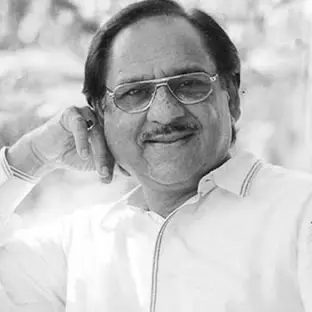
Ustad Ghulam Ali, born on 5 December 1940, is a celebrated Pakistani ghazal singer from the Patiala Gharana. He is widely regarded as one of the greatest ghazal singers of his time, known for blending Hindustani classical music with ghazals in a... Ustad Ghulam Ali, born on 5 December 1940, is a celebrated Pakistani ghazal singer from the Patiala Gharana. He is widely regarded as one of the greatest ghazal singers of his time, known for blending Hindustani classical music with ghazals in a unique and innovative style. A disciple of the legendary Bade Ghulam Ali Khan, […]
Read more
 About Artist
About ArtistUstad Ghulam Ali, born on 5 December 1940, is a celebrated Pakistani ghazal singer from the Patiala Gharana. He is widely regarded as one of the greatest ghazal singers of his time, known for blending Hindustani classical music with ghazals in a unique and innovative style. A disciple of the legendary Bade Ghulam Ali Khan, he was also trained by the latter’s younger brothers, Barkat Ali Khan and Mubarak Ali Khan. Ghulam Ali’s distinctive voice and intricate renditions of ghazals have earned him a devoted following in Pakistan, India, Afghanistan, Nepal, Bangladesh, and among the South Asian diaspora, especially in the US, the UK, and the Middle East.
Ghulam Ali’s ghazals have become iconic, with many of his compositions being featured in Bollywood films. Some of his most famous tracks include Chupke Chupke Raat Din, Kal Chaudhvin Ki Raat Thi, Hungama Hai Kyon Barpa, Chamakte Chand Ko, Kiya Hai Pyar Jisé, May Nazar Sé Pee Raha Hoon, Mastana Peeyé, and Yé dil yé pagal dil. His 2014 album Hasratein was even nominated for Best Ghazal Album at the Star GIMA Awards.
In 2015, Ghulam Ali’s planned concert in Mumbai was controversially canceled due to protests by the Shiv Sena, a political party in Maharashtra. This led to widespread discussions about the political climate and the role of music in bridging cultural divides. However, after the cancellation, he was invited to perform in other Indian cities, including Lucknow, New Delhi, Trivandrum, and Kozhikode. In a statement, Ghulam Ali mentioned that he would not perform in India until the situation improved, emphasizing that he did not want his music to be used for political purposes but would return when the “atmosphere is right.”
Ghulam Ali’s family has also carried forward the musical legacy, with his sons, Aamir Ghulam Ali and Nazar Ali Abbas, following in his footsteps as musicians. His contribution to ghazal music remains profound, and his influence continues to resonate in the classical and popular music scenes.